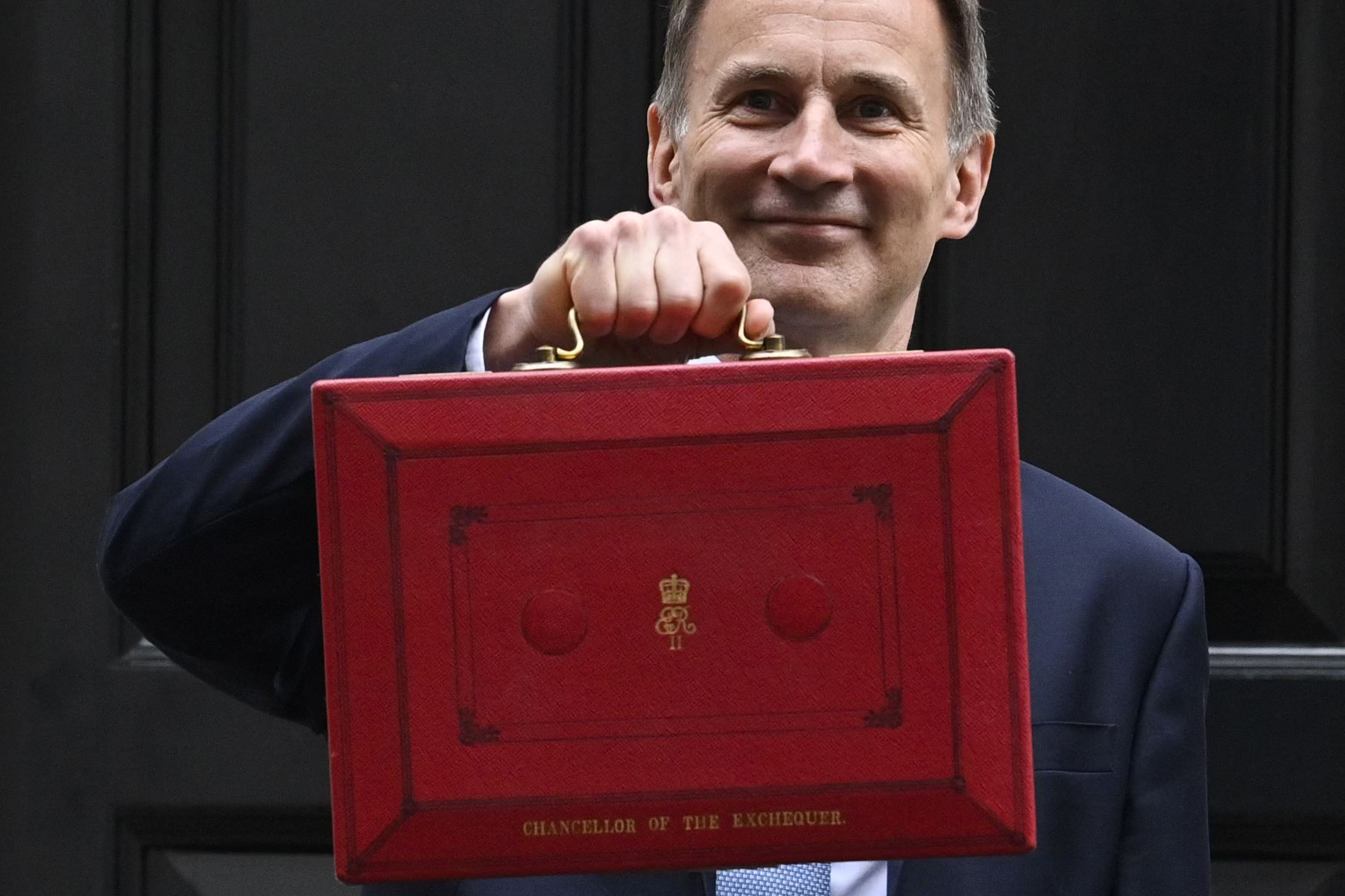Spring Budget 2023 - What it Means for UK Businesses

In his Spring Budget 2023, Chancellor Jeremy Hunt presented a large-scale package of incentives for businesses, with the aim of counteracting the hike in corporation taxes which is due to come into effect next month, to 25%.
The 2023 Spring Budget was especially positive for small business owners engaged in science and technology. It included an increase in R&D tax credits for leading-edge AI and fintech research and the formation of 12 investment hubs across the nation, both intended to benefit the technology industry.
Small business accountants, lawyers, and investors in the SME sector all shared the same opinion that the Spring Budget 2023 had little to offer most SMEs, unless they were involved in specific tech industries.
Robert Pullen, a Blick Rothenberg partner, described this as "just a lot of surface tinkering. Not much of significance and no substance".
Despite the Federation of Small Businesses urging for an extension of the Energy Bill Relief Scheme for SMEs, the most conspicuous absence was any reference to this matter - with over 350,000 small businesses facing the prospect of downsizing, restructuring or even shutting down if their energy bills return to their pre-discounted rates in April.
No reference was made to reform of business rates, despite there being demands for them to be fully eliminated. Since business rates bring in around £25bn annually for local services, a complete abandonment was not a realistic option. The £13.6bn support package declared in November is still in effect "but many retail businesses are let down by the lack of more far-reaching reform of the high street," said Andrew Todd, a partner at Eversheds Sutherland.
McTeague, head of the FSB, was highly critical of the lack of fresh assistance in essential sectors, claiming that this demonstrated the lack of regard and appreciation for small businesses.
He noted that creating a budget requires making difficult decisions, adding that the billions being earmarked for large organizations and households leaves out the 5.5 million small companies and the 16 million people employed by them. The speaker further commented that the Government's failure to provide adequate help to small companies in essential areas is obvious.
Taxation of Corporations
The taxation of corporations is a major issue in today's society. It is a complex and often controversial topic, and can have significant financial implications for businesses. Governments around the world have different rules and regulations in place to control the taxation of corporations and ensure transparency. These rules can range from tax deductions and credits to incentives to encourage certain types of investments. Depending on the jurisdiction, there may be different rates of corporate taxation, as well as different thresholds for determining which businesses are subject to taxation.
Genevieve Morris, the chief of corporate taxes at the accountancy firm Blick Rothenberg, has called the corporation tax hike "unfortunate" for business. She noted that "full expensing" would only be advantageous to the biggest companies, as most smaller businesses are already entitled to the £1m Annual Investment Allowance.
Rishi Sunak, the chancellor, announced in the 2021 Spring Budget that corporation tax would rise from 19% to 25% as of April. Those companies with profits higher than £250,000 will be the ones to feel the full brunt of the tax rise. Firms with profits between £50,000 and £250,000 will receive some respite. No change will take place for small businesses making under £50,000.
Permission for Yearly Investment Allotment
The government has raised the Annual Investment Allowance for smaller businesses to £1m, meaning they can now subtract the total cost of their investments from taxable earnings.
Allowing businesses to write off all of their investments in full
Rather than the £25bn super-deduction tax break, Hunt has put forward "full expensing", which makes it possible for businesses to immediately deduct 100% of their eligible capital spending within the UK from their taxable profits for the year it is made.
The Treasury has approximated that "full expensing" could cost £9 billion at its most elevated point, in comparison to £25 billion for super-deduction, yet this figure would decrease as time progresses. This is due to the fact that in the beginning, the scheme would include an immediate tax break for new capital investments, as well as allowances for former investments which are presently spread out over a period of time.
Yet, Marc Levy, partner of Blick Rothenberg, commented that small firms have not benefited as much as they would have with the super-deduction and, if their profits are lower than £50,000, they will not be able to reach the Annual Investment Allowance of £1m.
Areas designated for investment
The Treasury has declared a selection of "investment zones" which will grant businesses therein tax deductions and less stringent laws. These zones are located in the West Midlands, Greater Manchester, the North-East, South Yorkshire, West Yorkshire, East Midlands, Teesside, and Liverpool. Additionally, there is at least one zone in Scotland, Wales, and Northern Ireland.
Mr Hunt stated that the location of these investment zones should be a collaborative effort between a local government and a university or research institute, so as to spark the development of new innovation clusters.
Tax credits related to research and development
The Chancellor has revealed that some aspects of the plan to reduce R&D tax credits for smaller companies have been relaxed.
The Chancellor, during the Autumn Statement, curbed a program which enabled new businesses to reclaim taxes from their research expenditures.
Organisations within the most modern sectors, such as fintech and AI, that allocate up to 40 percent of their funds to research and development, will be provided an additional tax break amounting to £27 for each £100 expended.
It is predicted by the Government that around 8,000 firms would gain from the R&D tax credit, which is about 10 percent of those currently claiming the credit.
The pharmaceuticals and life sciences sectors, as well as those like AI, machine learning, and computer programming, can rejoice, as they are comprised of an impressive 1,000 and 4,000 companies, respectively.
Hunt referred to the £1.8bn assistance package as a means of aiding 20,000 modern firms in transforming Britain into a scientific superpower.
Yoko Spirig, co-founder and CEO of Ledgy, a Swiss-based tech firm with a presence in London, noted in relation to the current Budget that the new R&D tax credit scheme for SMEs is an encouraging development for the tech industry.
The UK government's intervention to assist tech companies amid the Silicon Valley Bank crisis demonstrates that the UK is still an appealing place for tech companies, and will assist in maintaining its status as a leader for other European markets.
In the Autumn Statement, the Treasury limited R&D tax credits for SMEs due to the large amount of fraudulent claims from the previous year - 5% of claims equating to almost £500m - and to reduce the overall expenses.
Nevertheless, Aman Behzad of Royal Park Partners, a fintech advisor, argued that providing R&D assistance to smaller SMEs is vital in driving the creation of novel technologies and the prosperity of inventive firms. He noted, "The Government is eliminating aid in the wrong areas."
From April 1, tech businesses that are eligible and making losses can expect to get £27 back from HMRC for every £100 they invest in R&D, while those companies that do not have an R&D focus and are in deficit can claim a rebate of £18.60, which is much lower than the 33 percent usually granted to smaller organisations.
Sarah Barber, the head of Jenson Funding Partners, commented that this change will be hugely influential for early-stage tech businesses in the UK, and for British research activities, particularly those that do not have the funds to commit 40% of their total expenditure to R&D.
No Increase in Fuel Duty for Another Year
Jeremy Hunt declared that the current freeze on fuel duty and 5p reduction in petrol and diesel prices will be sustained for another year, providing the average driver with a yearly cost savings of £100. The chancellor also underlined that this is the thirteenth consecutive year of a Conservative chancellor freezing fuel duty.



